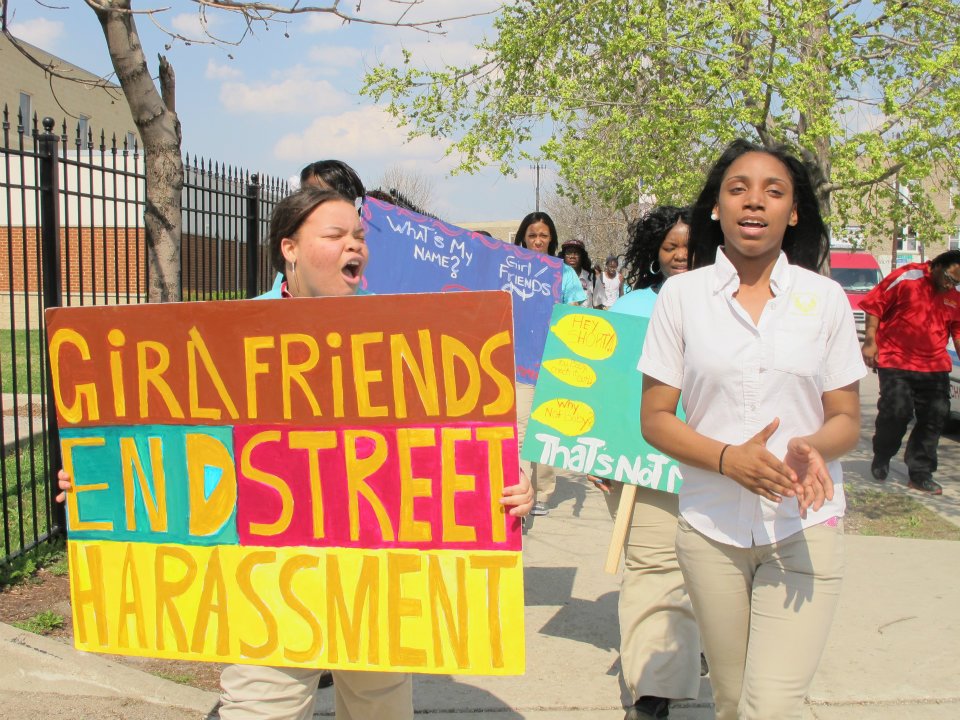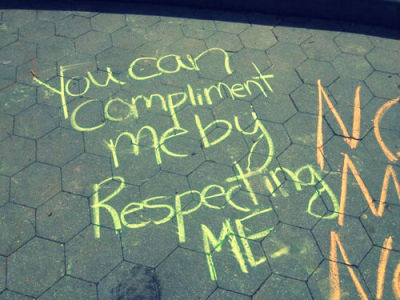I know this might not be as bad as other people’s stories but I got hassled in the street this morning. Some random drunk man (yes it was 11 a.m.) started shouting, “Oi sexy!” over and over.
At first I didn’t think he was talking to me as it is a busy inner city street but them he adds ,”Yeah you in the white skirt,” (which was full length by the way. Not sure why I feel the need to say what I was wearing but it’s seems woman have to justify that they were not being provocative.).
At this point I sped up, still ignoring him. His female friend laughed out loud and said, “Shane, that’s sexual harassment.” You could tell by her tone that she was joking though. He replied with more shouting directed at me. “It’s not harassment to tell someone they are sexy. Is it sexy? Oi!”
Luckily I had to turn off at that point so I lost them in a crowd but the whole thing made me feel really uneasy and uncomfortable. I wish I had had the courage to tell him and his friend that yes actually it is harassment to heckle someone in the street like that. I feel silly for being so upset about it, especially as I’m not a young girl, I’m almost 30 and not used to this kind of thing.
– Vic
Location: Norwich, UK
Share your street harassment story for the blog.



